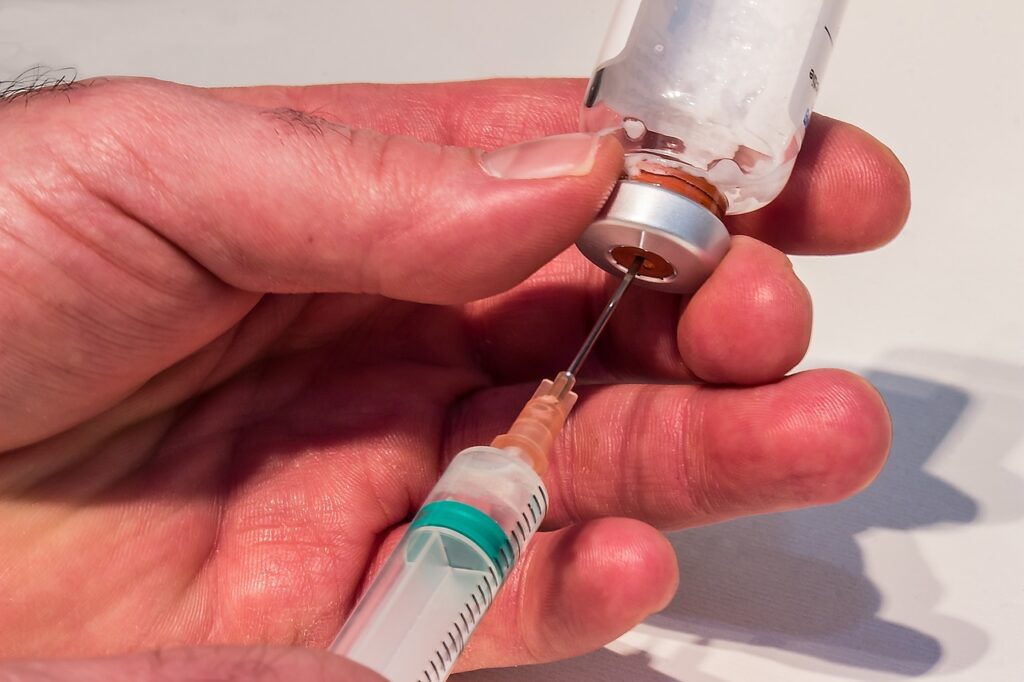RSV Vaccine Breakthrough: Protecting Infants 8 Months and Younger
If you’ve got young children, it’s highly likely that you’re familiar with Respiratory Syncytial Virus, or RSV. This respiratory virus typically causes mild, cold-like symptoms and is quite common — especially in the past few years. For most people who contract RSV, recovery happens after about a week or two, but for some patients, a case of RSV can be life threatening. In these situations, extended hospitalizations can be needed to treat severe cases of RSV.
The Need for a Specialized Vaccine for Infants Under 8 Months
One of the demographics most at risk for severe cases of RSV are infants under 8 months of age, as well as infants and children with other high-risk conditions. Because of the dangers that RSV can present, these young infants are especially at risk to contract a severe case, due to their newly-developing immune systems. One of the most-effective ways to protect these infants is through a vaccine, and until recently, that hasn’t been an option without certain high-risk factors being in place.
What Parents Need to Know
In 2023, a new RSV vaccine for babies called nirsevimab was approved for circulation. Nirsevimab is a monoclonal antibody product designed to protect infants and young children from severe RSV. The vaccine is recommended for infants younger than 8 months, and children aged 8-19 months if they have high risk for severe RSV disease. It is also recommended for older adults and any high-risk individuals.
Nebraska Home Pediatrics & Parents believe this vaccine is generally safe, and is confident in the amounts of rigorous development and research the vaccinations go through before approval.
Who is eligible for nirsevimab?
Unfortunately, with the current difficulties clinics are having with obtaining the new RSV vaccine, eligibility is limited to infants under 8 months of age with high-risk factors for RSV.
Nebraska Home Pediatrics & Parents is currently unable to obtain the new RSV vaccine for babies, but there are still ways to work to prevent RSV in your children, even without the nirsevimab.
According to HealthyChildren.org:
“If you are pregnant and your baby will be born during RSV season, you can get an RSV vaccine at any time between 32 and 36 weeks of pregnancy. When you get it during pregnancy, you pass the antibodies to your baby, so they are protected after they are born. It takes about 14 days for the immune protection from the vaccine to pass through the placenta to your baby. If your baby or toddler is at higher risk from RSV, they may be eligible for a different RSV immunization called palivizumab.”
How It Works
Though it is commonly referred to as a “vaccine,” nirsevimab is not technically an active immunization, though it works similarly. It is a “monoclonal antibody product” that delivers RSV antibodies directly to your child’s body in order to prevent infection.
Protection is expected to last for at least five months, and is expected to reduce severe RSV case risk by 80%.
When to Vaccinate
Once nirsevimab is more widely available, parents will be able to fit this new RSV vaccine for babies into their annual schedules. The tentative plan is to offer this vaccine during “RSV season” in the future, which is between October 1st and March 31st, although we recommend doing this as early as possible.
Risk Factors
Typically, the reactions experienced from nirsevimab are common ones associated with most vaccines — temporary pain, rashes, and injection site discomfort. However, some patients may have certain risk factors that warrant more caution.
According to the AAP:
“Nirsevimab is contraindicated in infants and young children with a history of serious hypersensitivity reactions, including anaphylaxis, to nirsevimab or to any of its components. Illness or febrile diseases are not contraindications to receiving nirsevimab.”
Nebraska Home Pediatrics & Parents Is Paying Attention
We are just as eager as our patients to get these vaccines in our clinic, so please know that we’re paying attention to supply updates, and will obtain the new RSV vaccine for babies as soon as we’re able.
If you have more questions, please give us a call!
